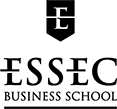Press freedom or the right to inform

On 7 January 2015, just 10 years ago, the attacks on the satirical newspaper Charlie Hebdo and the Hyper Cacher store took place in France. 17 people were killed, including 9 journalists.
More than ever, press freedom and the right to inform must be defended.
You will find below a selection of documents to inform you:
Articles
-
Kenny, Paul D. “The Enemy of the People”: Populists and Press Freedom. Political research quarterly, 2020, 73 (2), p. 261–275.
-
Majeed, Tawseef. Embedded authoritarianism: the politics of poor press freedom in Indian Kashmir. Media, culture & society, 2022, 44 (3), p. 613–624.
-
Muller, Denis. Costly defamation action looms large over Australian newsrooms. It’s diminishing press freedom. The Conversation, 24th of September 2024.
-
National Press Club. Press Freedom Center Statement on the Release of Cecilia Sala. PR Newswire, 8th of January 2025.
-
Orgeret, Kristin Skare.‘The international legal system has collapsed, and journalism is collapsing with it’: why 2024 was the deadliest year on record for reporters. The Conversation, 7th of January 2025.
-
Price, Lada Trifonova et al. Southern European press challenges in a time of crisis: A cross-national study of Bulgaria, Cyprus, Greece and Malta. Journalism (London, England), 2024, 25 (11), p. 2420–2439.
-
Rose, David. Court quashes police efforts to seize journalist's material. The Independent, 12th of November 2023, p. 8.
-
Wahid, Anita. Journalists in Indonesia are being killed, threatened and jailed. A new draft law could make things even worse. The Conversation, 19th of July 2024.
Videos
- Indian government's crackdown on press freedom after BBC documentary critical of PM Modi. PBS NewsHour, 16th of February 2023.
- Nobel-winner Maria Ressa on how the future of journalism and democracy are linked. PBS NewsHour, 31st of May 2024.
- Press Freedom: An Antidote to Tyranny. Arte.tv Documentary, Le dessous des cartes, 3rd of May 2024.
Podcast / Radio
- Press freedom and media censorship. University of Oxford podcast, Reuters Institute for the Study of Journalism, 13th of January 2020.
Our thematic selections - Friday 18 November 2022
Sources in geopolitics

Definition and reference material
Geopolitics have been defined as the study of geographical parameters that can influence power relationships in international relations. Having emerged as a science in the 19th century at the same time as economics, sociology and psychology, geopolitics has evolved during the 20th century, successively marked by imperialist confrontations, the Cold War and multilateralism. The discipline has recently been renewed with the relative fading of inter-state confrontations vis-à-vis other power relationships, whose fluctuations are linked to the accelerated global circulation of innovation and capital. According to Yves Lacoste, "Geopolitics means any power rivalry over or for territory".
The sources selected below are mainly in English or bilingual, in order to facilitate their consultation by an international audience. They can be consulted from the ESSEC K-lab website for members of the institution, or freely available on the Internet. First, a few reference manuals are presented to help understand the stakes of geopolitics as a discipline, then general sources, either on a global scale or on multiple themes, and finally specialized sources by region of the world and precise theme.
For more information on the history of the the historically located notion of geopolitics, see: Introduction à la géopolitique (Amaël Cattaruzza, in French).
Example of a textbook, available online via the CAIRN resource on the K-lab website (in french):
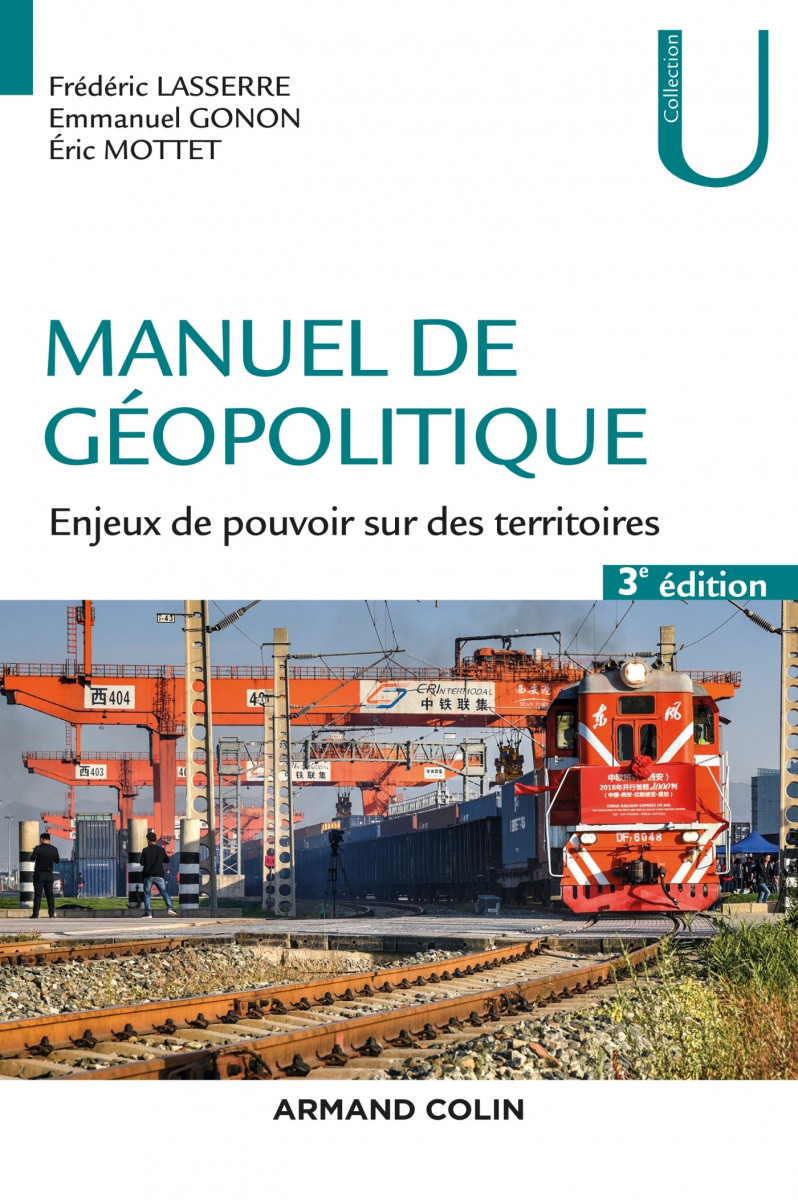 |
Manuel de géopolitique : Enjeux de pouvoir sur des territoires Cet ouvrage propose une partie de définition. |
More textbooks referenced by our Discovery tool and available at ESSEC.
As we can see in this zoom on resources, geopolitics is not limited to relations between States. In order to enrich your search keywords, which are as many ways of accessing varied and relevant documents according to the issues to be documented, you will find it useful to consult :
- the index of specialized journals
- the journal watch
- the monograph reviews when they are published in bookstores
In order to understand geopolitical issues, it is necessary to understand the way of thinking of the other, in what its representations can be different. You will have recourse to the foreign press, which can be consulted for example in Factiva (more than 22 languages), and which can be understood via automatic translation tools (do not forget to specify this in your academic work), but also to the sources in geopolitics by regions of the world and countries identified in this zoom, which sometimes bring different insights from those of your country of origin and the great world powers.

Be aware that, although they do not emphasize it, search algorithms such as Google's personalize their results based on the country you are in.
Finally, although it is preferable to consult national or international press sources, the local press can sometimes shed light on local issues that concern it, just as it can bring in experts to speak on national or international issues for its very large audience:

Those settings are available in Europresse:

Do not forget that geopolitical actors are not only States. They can also be large international organizations such as companies, NGOs, influence groups of various origins, etc., or more local ones. In this respect, you can consult the specialized sources in Factiva, emanating from economic actors or focusing on them (business sources, btoc sources), NGOs, as well as governmental sources. Try to select only articles that are analytical, not just stating facts or repeating press releases.

Generalist resources
Several generalist and more specialized geopolitical journals are available online to ESSEC members via our Discovery tool or our databases of academic articles:
- European journal of international relations
- International organization
- Survival: global survival and policy
- Le Monde diplomatique:
- Foreign policy
- Foreign affairs
- Comparative strategy
- Politique Étrangère (in French)
- Revue Défense Nationale (in French)
- Revue internationale et stratégique (Among the latest issues: Géopolitique et entreprises (2021/1), Géopolitique de la nature (2021/4)…)
- Hérodote : Revue de géographie et de géopolitique (available in French and in English)
Some journals publish an English edition on CAIRN international, such as: Futuribles.
Specialized resources
The K-lab librarians have compiled many sources of information about the various aspects of geopolitics into the following three documents. You can save them to your own Google Drive, or download them in PDF format.
- General geopolitical sites and journals freely available on the Internet
- Geopolitical sites by regions of the world, with many maps
- Sites, journals and thematic monographs in geopolitics
Photo by Nick Fewings on Unsplash
Rate this content
Our thematic selections - Thursday 13 October 2022
Sustainability and ecological transition
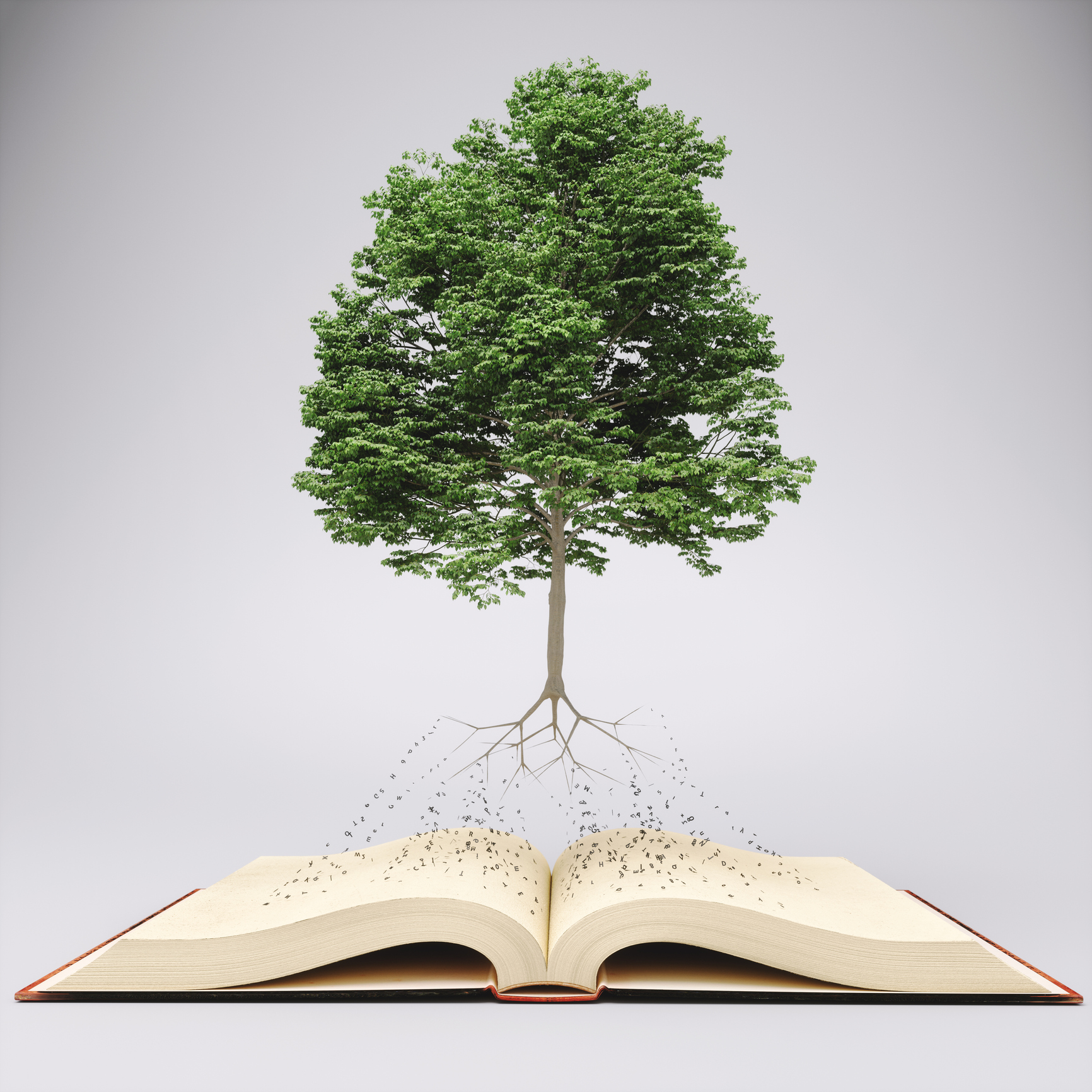
The sustainability of our social model has become a major issue in the face of the consequences of global warming and the global crisis, both environmental and social. You will find below a selection of documentary resources available at ESSEC's K-lab or freely accessible on the internet. This will allow you to approach the scientific findings of the crisis and its consequences on the economy and society. It will also focus on resources intended for higher education. This first approach should be completed by your own research. This selection of resources has been put together with the help of Together and the students of the collective ESSEC Transition.
K-lab resources
Books
You will find many books on these topics at the Learning Center, either by going directly to the shelves VII 60 (environment), VII 601 (sustainable development), or, better yet, by searching for the following keywords on Discovery. For example:
- Développement durable / Sustainable development
- Décroissance soutenable / Negative growth
- Changement global de l'environnement / Global environmental change
- Économie de l'environnement / Environmental economics
- Politique de l'environnement / Environmental policy
- Écologie humaine / Human ecology
- Responsabilité sociétale / Social responsibility of business
- Recyclage (déchets, etc.) / Recycling (Waste, etc.)
- Permis de pollution négociables / Emissions trading
- Transition énergétique / Energy transition
- Décarbonation
Some examples of books you can borrow from the Learning Center:
- Gemenne, François, Aleksandar Rankovic, et Atelier de cartographie de Sciences Po. Atlas de l’Anthropocène. Presses de Sciences Po, 2021.
- Cécile Renouard,..., Frédérique Brossard Børhaug,..., Ronan Le Cornec,... [etc.]. Pédagogie de la transition. Les Liens qui Libèrent, 2022
- Collectif FORTES. Manuel de la grande transition. Les Liens qui Libèrent, 2020
Journals
- International journal of sustainability in higher education
- Current opinion in environmental sustainability
- Nature Sustainability (Open Access)
MOOCs
The K-lab provides you with access to thousands of MOOCs on Coursera, and free certification if you pass a MOOC. Here is a short selection of courses and specializations you can take on Coursera or other platforms:
- Entreprise et changement climatique / Companies and climate change (ESSEC)
- Exploring Our Responses to Climate Change : 3 courses specialization (University of Colorado Boulder)
- Act on Climate: Steps to Individual, Community, and Political Action (University of Michigan)
- Driving business towards the Sustainable Development Goals (Rotterdam School of Management at Erasmus University)
- Université Virtuelle Environnement et Développement durable on FUN MOOC (in French)
- L’ADEME on FUN MOOC (in French)
- Energie et climat season 1, season 2 and season 3 by the associations Avenir Climatique and Bilan Carbone, on Youtube (in French)
Web resources
United Nations:
The 17 Sustainable Development Goals designed by the UN give us the path to a better and more sustainable future for all.
IPCC reports: comprehensive scientific and technical assessment of climate change. A summary, written in a more accessible manner, is also published for policy makers. The most recent reports (2021-2022) have not yet been translated into French. If you prefer the video format, you can view their Youtube channel.
United Nations Framework Convention on Climate Change
International Resource Panel Reports on decoupling, cities, water, metals, land and soil, food, trade, resource efficiency, green technology and global material flows.
Government Sites and Reports:
“The carbon footprint of the French remains stable”, general commission for sustainable development (January 2020, in French).
Transition(s) 2050 by ADEME : 4 scenarii for a carbon neutral France in 2050. Article from the journal Futuribles which presents an introduction of the scenarii (in French).
Resource center for adaptation to climate change (in French)
National observatory on the effects of climate change (ONERC, in French)
Seminar on sustainability (France Stratégie, in French)
Statistical data and studies on climate change, energy, environment, housing and transport ((Ministry of Ecological Transition, in French)
Media:
Reporterre: independent media dedicated to ecology (in French).
On his website and on social networks, Thomas Wagner aka Bon Pote analyzes the news related to sustainability and ecological transition. Some articles are available in English.
Novethic is a subsidiary of the Caisse des Dépôts Group, and a media company specialized in CSR and sustainable finance.
Actu-Environnement is a professional press title specialized in the environmental fields (in French).
The Good Goods: media on responsible fashion (in French).
Podcasts:
- Time to Shift by Shift Project (in French)
- THE BIG SHIFT ! L'écologie pour tous by Xavier Seux (in French)
- présages : conversations, ideas to feed the mind and radically question the state of our world (in French)
- The Climate Question (BBC)
Other organisations and reports:
In this research paper, Lucas Chancel, from the World Inequality Lab at the Paris School of Economics, shows that the richest 10% of the global population emits nearly 48% of global emissions in 2019, the top 1% emits 17% of the total, whereas the poorest half of the global population emits 12% of global emissions.
Green Finance Observatory : An independant think tank composed of researchers and former finance and business professionalsworking on carbon markets, natural & human capital and sustainable finance.
Institut du développement durable et des relations internationales : publications, podcasts and events. Most notably, they published a report in 2013 to challenge the notion of growth (in French).
Stockholm Resilience Center : international research centre on resilience and sustainability science, responsible for the study on the 9 planetary limits.
Citepa (Centre technique de référence en matière de pollution atmosphérique et de changement climatique) : non-profit organisation and State operator for the French Environment Ministry fighting against atmospheric pollution and climate change by calculating, interpreting and disseminating information on reliable emission data.
Shift Project : think tank working for a carbon-free economy. For example, they have written a Plan de Transformation de l'Economie Française (Plan To Transform the French Economy). They also publish videos on Youtube (in French).
Intergovernmental Science-Policy Platform on Biodiversity and Ecosystem Services : independent intergovernmental body.
Institute for climate economics : think tank with expertise in economics and finance whose mission is to support action against climate change.
Haut conseil pour le climat : The High Council on Climate (HCC) is an independent body tasked with issuing advice and recommendations to the French government on the delivery of public measures and policies aimed at reducing France's greenhouse gas emissions. Only the 2019 and 2020 annual reports have been translated to English, but more recent reports are available in French.
Convention des Entreprises pour le Climat (CEC) : Convention of businesses for the climate (in French).
Global Atlas of Environmental Justice : documents and catalogues social conflicts around environmental issues.
Social media:
The Science Po library manages Twitter lists that include many accounts specialized in various subjects:
There are also many Instagram accounts that can help you keep up with current events and get inspired to take action for the environment. These are only a few exemples (in French):
- On Est Prêt : awareness movement on environmental and social issues.
- Zero Waste France : association campaigning for waste reduction and better resource management.
- Pierre Rouvière (ecolo_mon_cul) : engineer, eco-designer.
- Vegan Tourist Paris : map of vegan restaurants in Paris.
- Mélanie Lily (LilyFairly) : gardener.
- Eva les petits plats : vegan chef.
Higher education
Office for Climate Education : international initiative for climate change education.
Education for Sustainable Development Goals: learning objectives by UNESCO.
Guides and fact sheets by RESES, Réseau Étudiant pour une Société Ecologique et Solidaire (in French).
GreenComp : The European sustainability competence framework.
Education relative à l’environnement: Open Access journal (in French).
« ClimatSup Business, Former les acteurs de l’économie de demain » a project by Shift Project (in French).
The platform EnseignerLeClimat.org to share educational resources for teaching transition (in French).
The Convention pour la Transition des Etablissements du Supérieur (in French), an association which notably initiated the Accord de Grenoble (signed by ESSEC).
The Great Barometer of the ecological transition, a national survey on the consideration of ecology in higher education conducted by the collective Pour un réveil écologique.
The Association fédérative Nationale des Étudiant.e.s en Géographie, aménagement, urbanisme, environnement et disciplines territoriales has published several guides, including "Le Guide de Mon Association Durable" and "Les Plans Vraiment Verts : ou comment faire entrer la biodiversité sur les campus" (in French).
The Université Virtuelle Environnement et Développement Durable has produced a pedagogical file comprising 68 videos to better understand and teach environmental issues (in French).
The Climate Fresk and the Fresque de la Biodiversité (in French).
The Sulitest, to measure your level of knowledge regarding sustainable development.
The ebook "Enjeux de la transition écologique : Enseigner la transition écologique aux étudiants de licence à l’université" by Université Paris-Saclay (in French).
The report "Sensibiliser et former aux enjeux de la transition écologique et du développement durable dans l’enseignement supérieur" by Jean Jouzel (february 2022, in French).
Sustainability and ecological transition at ESSEC
Together : Through its strategy, ESSEC is committed to an ecological and social transition (in French).
ESSEC Impact Initiative gathers ESSEC's initiatives towards impact.
ESSEC welcomed the first class of the MSc in Sustainability Transformation in September 2022.
Déjeuners Climatiques : ESSEC employees interested in sustainability and ecological transition meet every month to discuss actions to be taken (in French).
Chaires :
- Chaire ESSEC Talents de la transition écologique
- Chaire Global Circular Economy
Associations :
- NOISE (in French)
- ESSEC Transition Alumni (in French)
- ESSEC Transition : Facebook / Instagram
Once you are well informed about the theory of sustainability and ecological transition, take action with these resources provided by ESSEC Transition for positive discoveries:
- Institut des Futurs souhaitables (in French)
- 2030 Glorieuses : job profiles, podcast (in French).
- CQFD - Ce Qu'il Faudrait Développer (in French): collection of the "most important proposals to experiment" proposed by personalities recognized in their fields (agriculture, sociology, journalism, collective intelligence, social entrepreneurship...).
Have a look also at our highlignt on digital sobriety, and, in connection with CSR themes, our highlight on Diversity, Equity and Inclusion.
Rate this content
Our thematic selections - Monday 09 May 2022
Diversity, equity, inclusion
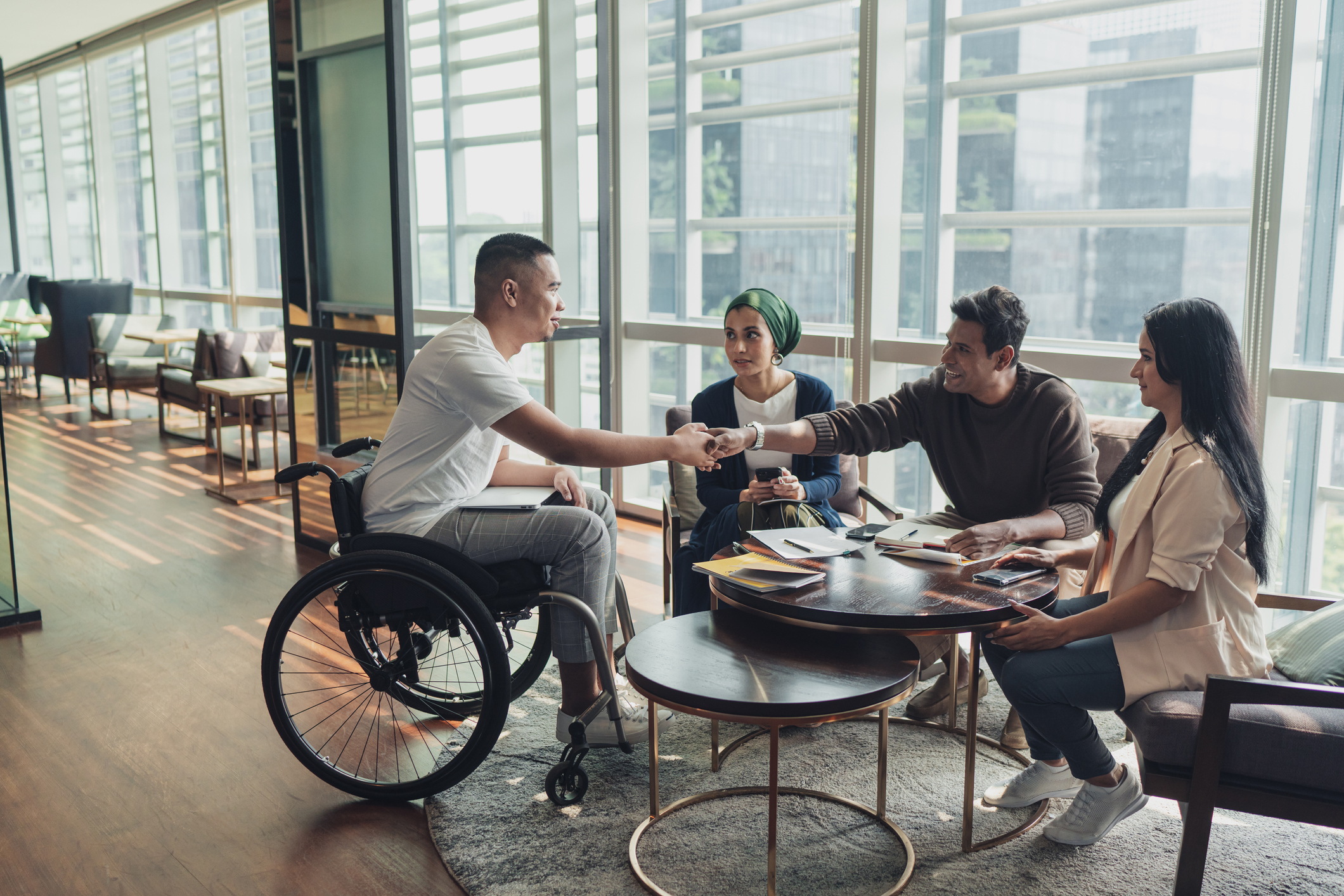
The topic of diversity, equity and inclusion is a major issue for ESSEC, higher education and society. The following is a selection of resources developed by the ESSEC K-lab, in partnership with the Equality, Diversity and Inclusion Center for ESSEC. It does not claim to be exhaustive, and is based on a few examples that are not representative of the richness of the subject. It is a simple entry point for your specific research and reflections, which will go much further in terms of precision in accordance with your information needs.
1/ Background
Diversity, equité, inclusion : what are we talking about?
Definitions (from Diversity in the workforce, current issues and emerging trends, edited by Marilyn Y. Byrd and Chaunda L. Scott, Routledge, 2014):
The term "Diversity", which originated in biology, was then applied to the social field to designate the countless ways in which human beings differ from one another. It is a fairly recent concept in the workplace, where it refers to the valuing of different ways of leading, managing, being business partners, employees, consultants, consumers, etc. Some retain a restricted definition of diversity criteria based on national, EU and international regulations. Others extend it to broader criteria of possible discrimination.
Equity is the equal distribution of opportunities.
Inclusion is the maintenance of an environment that welcomes, respects, encourages and values the participation of all individuals or groups of individuals with their differences
For more theoretical developments, you can refer to the documentation presented below, but also to the courses of the Leadership and Diversity Chair and the Mooc Diversity and inclusion in the workplace by Junko Takagi on Coursera.
2/ Exemples of resources
The resources below are either from public sites with free access or from resources reserved for the ESSEC community (databases, professional theses, pedagogical cases, etc.).
2.1. Inequality and discrimination: texts and guidelines
Discrimination is defined as unequal treatment based on a criterion prohibited by law (gender, age, health status, etc.) and in a field cited by law (access to a service, recruitment, etc.).
There are more than 25 criteria for discrimination under French law, 14 of which are derived from international conventions and European texts, including age, sex, origin, state of health, trade union activities... You will find the list on the Defender of Rights website.
Discrimination is an offence provided for in articles 225-1 and following of the penal code. The penalty is 5 years in prison and a fine of 45 000 €.
Legal texts and directives:
- In France : Law on the fight against discrimination (in french)
- En Europe :
- Directive 2006/54/EC of the European Parliament and of the Council of 5 July 2006 on the implementation of the principle of equal opportunities and equal treatment of men and women in matters of employment and occupation (recast)
- Directive 2010/41/EU of the European Parliament and of the Council of 7 July 2010 on the application of the principle of equal treatment between men and women engaged in an activity in a self-employed capacity and repealing Council Directive 86/613/EEC (Eur Lex Europa)
- Regulation (EC) No 1922/2006 of the European Parliament and of the Council of 20 December 2006 establishing a European Institute for Gender Equality
- European Community and the fight against discrimination (in french)
: L'Europe sociale, état des lieux et perspectives - European Court of Human Rights
2.2. Educational tools and action plans have been developed to promote diversity, equity and inclusion in higher education and beyond
The National Action Plan for Equality and Against Anti-LGBT Hate and Discrimination 2020-2023
Higher education: how to act against racism and anti-Semitism? (in french)
National action plan against gender-based violence in higher education and research (in french)
Cases and modules with diverse protagonists (consultation reserved for professors) and on the themes of diversity:
- Gender diversity in Renault’s showrooms: challenges ahead
- Diversity, Equity, and Inclusion: Resources for Educators published by Harvard Business Publishing
- Case Centre selection of award-winning cases that feature a female protagonist.
https://www-cairn-info.essec.idm.oclc.org/revue-futuribles-2022-3-page-5.htm
A professional thesis by a Centrale-ESSEC Entrepreneurs MS student on the gendered marketing of toys and how to change it. This thesis was awarded by the association Femmes&Sciences.
The Diversity Fresco is a tool inspired by social psychology and focused on the individual, designed to help small groups understand, through a head-heart-body pedagogy, the concrete problems of inequality and injustice that organizations face, and the possible solutions. (in french)
2.3. Sources of information to consult from your ESSEC library
The K-lab librarians have compiled many sources of information about DEI into the following three documents. You can save them to your own Google Drive, or download them in PDF format.
Rate this content
Our thematic selections - Wednesday 09 February 2022
Digital sobriety

It's a phrase we're hearing more and more: what exactly is digital sobriety? Very recently, most of our activities went online during the exceptional circumstance of the Covid-19 pandemic. But this only accentuated a basic trend. Digital technology is now omnipresent in our lives: what are the risks of an excess? What is the basis for defining this excess? How do the consequences of digital use manifest themselves in different fields: economy, society, ecology?
Why do we associate the term "sobriety" with digital technology in particular? Are they two terms that cannot really be thought of without each other?
Indeed, digital technology represents an enormous consumption of resources and a considerable emission of waste, including CO2, which contributes to global warming. But historically it has been presented, perhaps even thought as a process of dematerialization. In other words, a way to pursue economic growth while sparing natural resources. So much so that today, the term digital is often used in conjunction with the term ecological transition, as if it allowed the continuation of Business As Usual under new clothes. Why is this an illusion? Why does this illusion persist?
As for the reflection on sobriety, or the decrease in our consumption of natural resources, it goes back at least to the first oil crisis of 1973, but it is perhaps as old as ecology as a feeling for nature and its preservation. It did not wait for the advent of digital technology to emerge.
So, are "sobriety" and "digital" two associated or antinomic terms? Is the expression "digital sobriety" the same kind of oxymoron as the expression "green growth"?
To make your own opinion on these decisive questions for the future of our societies, the K-lab offers you a selection of documents and key players on the issue, as well as two types of events:
- Capture of the Déjeuners Climatiques meeting of January 27, 2022 by videoconference (in French):
Fabrice Flipo, author of "L'impératif de la sobriété numérique" ("The Digital Sobriety Imperative"), published by Editions Matériologiques in 2020, talks about his research on the issue of the growing weight of digital technologies in our lives and on the environment. Much more than a simple means of communication, digital technology is present today in all the logistic chains of the world economy, while its production as well as its use are for a large part ecologically unsustainable. What choices could we make to significantly change this trajectory?
- The K-lab workshop "Ecolo Geek: digital sobriety, what good practices" : Since 2019, the K-lab team regularly offers this workshop to raise awareness and question the Essec community (students, staff, participants in continuing education) on its uses of "digital"; the opportunity to review the key concepts, discuss best practices to free themselves from greenwashing. A one-hour workshop that mixes critical thinking and civic engagement by giving the keys to act.
If you wish to participate in this workshop, you have two options:
- Follow the K-lab Workshops news and register for the next workshop
- Contact the K-lab to organize a session
Short selection of resources (in french) on digital sobriety, to be found at ESSEC's K-lab or freely available on the internet:
- On the global weight of digital:
- Fabrice Flipo, L’impératif de la sobriété numérique : l’enjeu des modes de vie
- Frédéric Bordage, Tendre vers la sobriété numérique : je passe à l'acte
- EcoInfo du CNRS
- On mineral extractivism:
- Bihouix Philippe, « Smart world vs « monde d’après » : quelle technologie pour demain ? », L'Économie politique, 2021/2 (N° 90), p. 48-61.
- Guillaume Pitron, “Quand le numérique détruit la planète”, le Monde diplomatique, octobre 2021
- Guillaume Pitron, L'enfer numérique : voyage au bout d'un like, Les Liens qui libèrent, 2021
- The association Systex, Rapport d'étude : Controverses minières, Volet 1, 16 novembre 2021
If you are looking for tools to better master the issues related to digital sobriety, or even to take action, several initiatives and resources have caught our attention:
- Participate in a playful and collaborative workshop with the digital collage. A recreational format that will allow you during 3 hours to exchange, discover and deconstruct some preconceived ideas on the subject.
- Self-training with MOOCs:
- Numérique Responsable. The INR (Institut du Numérique Responsable) offers you a complete course of 4h30 with a focus on the best practices to implement to reduce our digital impact.
- Impacts environnementaux du numérique, by INRIA (National Institute for Research in Digital Science and Technology): 5 hours to "learn to measure, decipher and act to find one's place as a citizen in a digital world".
Digital technology does not only have environmental consequences. It is also a determining factor in the evolution of our societies, with effects on the quality of our interpersonal relations at work and in the public space, as well as on our individual attention and concentration capacities.
Illustration : Muntaka Chasant, CC BY-SA 4.0, via Wikimedia Commons
Rate this content
- Tuesday 10 November 2020
Learning English
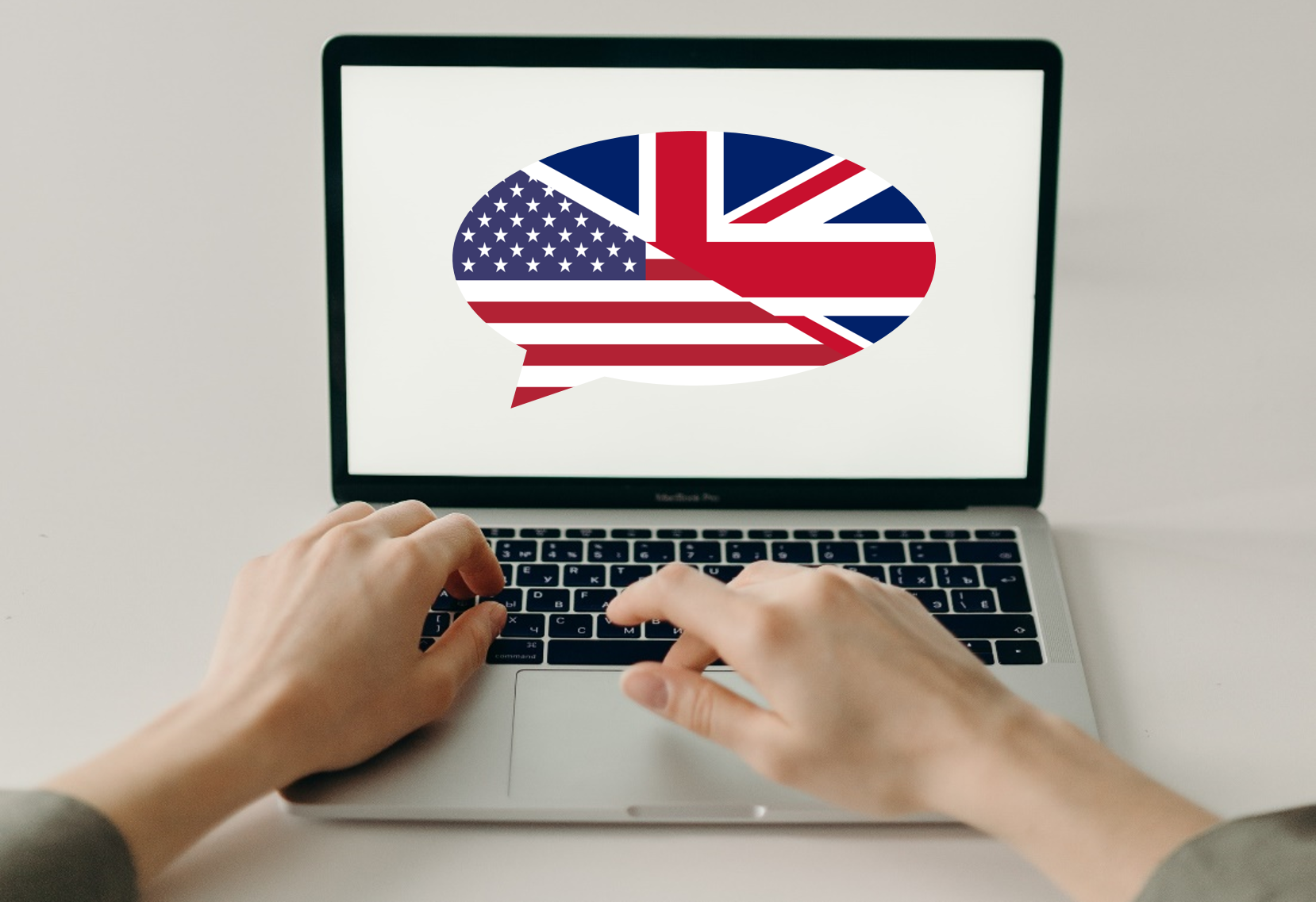
To learn and improve your English, nothing is better than to practice regularly! To that end, we have selected websites where you can do grammar exercises, learn vocabulary or practice for different exams, as well as less academic tools: podcasts with their transcriptions, subtitled videos, comic books, etc.
You can borrow many books to learn the english language at the Learning Center, some of which contain CDs or online recordings for you to practice listening skills. We can lend you CD/DVD players if you need them.
The British Council has a very comprehensive site: grammar, vocabulary, IELTS preparation, professional English, etc.
Practice and tests
The majority of the sites are freemium: you can access part of the content for free, the rest is subject to a fee. By combining the different sites below, the total number of exercises and mock exams you can access is quite large.
Official websites : TOEFL / TOEIC / IELTS
- digiSchool : TOEIC, TOEFL, IELTS and Cambridge English
- GlobalExam : TOEIC, TOEFL, IELTS and Cambridge English
- TestDEN : TOEIC, TOEFL
- Courslangues : level test
- EnglishClub : TOEFL and TOEIC
- Test3000 : TOEIC
- CanadaVisa : IELTS
You will find on the websites below many exercises of grammar, conjugation, vocabulary etc. (don't let the sometimes old-fashioned interface stop you!) :
Dictionnaries
Reading
The K-lab resources provide access to many journals and reviews online, especially on Europresse and Factiva (Highlight). By reading the press regularly, you will improve your vocabulary and your reading skills.
The K-lab resources also contain ebooks, that you can find on Discovery (Highlight), and novels in the News and Culture area of the Learning Center.
Public domain books can be downloaded for free:
- Pride and Prejudice by Jane Austen
- My Bondage and My Freedom by Frederick Douglass
- The Strange Case of Dr. Jekyll and Mr. Hyde by Robert Louis Stevenson
- Little Women by Louisa May Alcott
- Leaves of Grass by Walt Whitman
- Frankenstein; Or, The Modern Prometheus by Mary Wollstonecraft Shelley
- The Adventures of Sherlock Holmes by Arthur Conan Doyle
Many comics writers and artists publish online:
- Strange Planet by Nathan W Pyle
- Business Cat by Tom Fonder
- Dinosaur Comics by Ryan North
- Cat vs Human by Yasmine Surovec
- Channelate by Ryan Hudson
- xkcd by Randall Munroe
- Bouletcorp by Boulet
Listening
- BBC Learning English
- Voices of America
- CNN audio
- TED Talks
- NPR
- Luke's English Podcast
- All Ears English: Business English
- HBR IdeaCast
You can listen to audiobooks online for free:
- Pride and Prejudice by Jane Austen
- The Story of Siegfried by James Baldwin
- The Last Night of the World by Ray Bradbury
- Alice's Adventures in Wonderland by Lewis Carroll
- 1984 by George Orwell
- Three Women by Sylvia Plath
Rate this content
Our thematic selections - Thursday 05 November 2020
Learning French
Online resources for self-training in French!

Practice and test
Le plaisir d'apprendre
Resources website of Cavilam : alliance française for teachers of French as a foreign language (FLE)
Le Point du FLE
Directory of sites whose objective is to facilitate access to the best free French resources available on the Internet: interactive grammar, self-correcting exercises, simulations...
TV5MONDE
Lessons for all levels : free exercises, evaluation test
Le français facile avec RFI
Exercises for every level
Podcasts and videos
Podcast Français Facile
Lessons for all levels
Journal en Français Facile
Radio news with transcription
Youtube channel Learn French with Vincent
Lessons for all levels
Youtube channel Français avec Pierre
Lessons for all levels
France TV
Create an account to watch French TV shows, documentaries, movies, etc.
Define and translate
Larousse
Dictionnary, online translation
National press
For more press, browse our databases Europresse and Cafeyn.
Reading
Comics:
Audio books:
- Sur les chats de Guy de Maupassant
- Les dames vertes de Georges Sand
- Emma de Jane Austen
Public domain ebooks:
- Le blé en herbe de Colette
- Thérèse Raquin d'Emile Zola
Novels adapted into simplified French:
- Notre-Dame de Paris de Victor Hugo
- Dr Jekyll et Mr Hyde de Robert Louis Stevenson
- Le tour du monde en quatre-vingts jours de Jules Verne
Rate this content
iMagination Week 2017
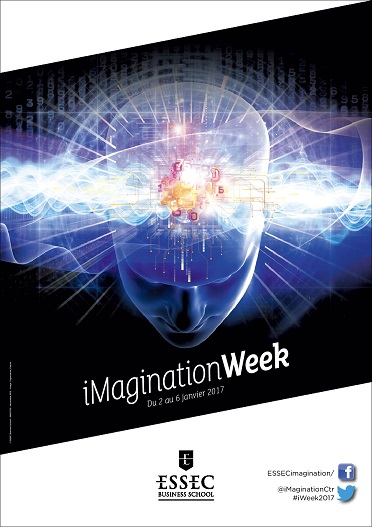
For the sixth year in a row, ESSEC is preparing to spread the spirit of iMagination Week across the Cergy campus. This year, more than 700 students from our Management MA cycle will join us, from January 2 to 6, 2017, with an even richer program on the theme of “Shaping the city-state: Politics, policy and society”, under the patronage of Marie Trellu Kane (E94), president and cofounder of Unis-Cité and Jean-Luc Petithuguenin (E79), CEO of Paprec Group.
iMagination Week is based on a pedagogy specifically developed for our students and whose aim is -as is ESSEC’s- to train individuals who are as free as they are responsible, as imaginative as they are realistic. The goal of this week is to help them understand that the ideal society of the future can only become a reality by their applying their imagination and their commitment. That is why, to nourish our students’ creativity, we expose them to challenging people who are all recognized in their respective fields.
The Learning Center selected for you some documents about the topics that will be discussed this week. The selection will be on display at the Learning Center entrance from Monday, August 29th on.
You can also take a look at our journals and magazines, online or print, and at our ebooks!
And of course, the reference desk is always here to help you with your project. Feel free to ask us for personalised advice: which resources are best to find a specific type of information, how to chose keywords, how to know if a source is reliable and how to cite it… We have the answer to all of these questions and much more! You can also contact us through email, phone or chat.
The program and information about iMagination Week will be soon available on:
 https://www.facebook.com/ESSECimagination and
https://www.facebook.com/ESSECimagination and  https://twitter.com/iMaginationCtr / #iWeek2017
https://twitter.com/iMaginationCtr / #iWeek2017
For more information about the speakers:
 |
Dr Jean Louis Etienne, physician and explorer, will speak about pioneering spirit and tenacity. |
||
|
Rob Spence, canadian filmmaker et transhuman, will share with us his cyborg experience and his projects. |
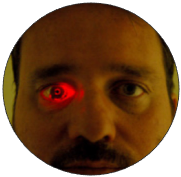 |
||
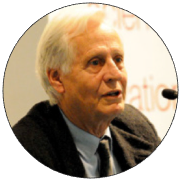 |
Prof. Heinz Wismann, philologist et philosopher, will explain the importance of thinking through the languages. |
||
|
Jean-Baptiste Lecaillon, Executive Vice-President and Winemaker at Maison Louis Roederer, will share some of his secrets and take us to the unique world of champagne. |
 © Luc Manago © Luc Manago |
||
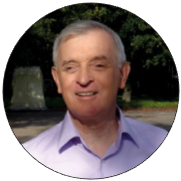 |
Prof. Jean Jouzel, climatologist et glaciologist (co-recipient of Nobel Peace Prize 2007), will awaken our consciousness about climate as the main issue of tomorrow’s city. |
||
|
Dr Françoise Wilhelmi de Toledo, nutritionist physician et co-director of Buchinger clinics (Germany and Spain), will enlighten us about the art of fasting. |
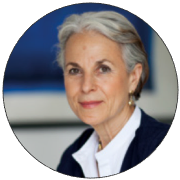 |
||
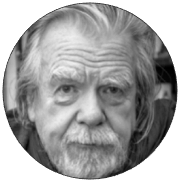 |
Michael Lonsdale, French actor who received a César for best supporting role in Des hommes et des Dieux, will exchange with students about the importance of voice and presence on stage. |
||
|
C215, street artist and stencil artist, will unveil and comment his amazing and engaged work. |
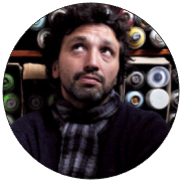 |
||
Meeting & signing session with Professor Fabrice Cavarretta
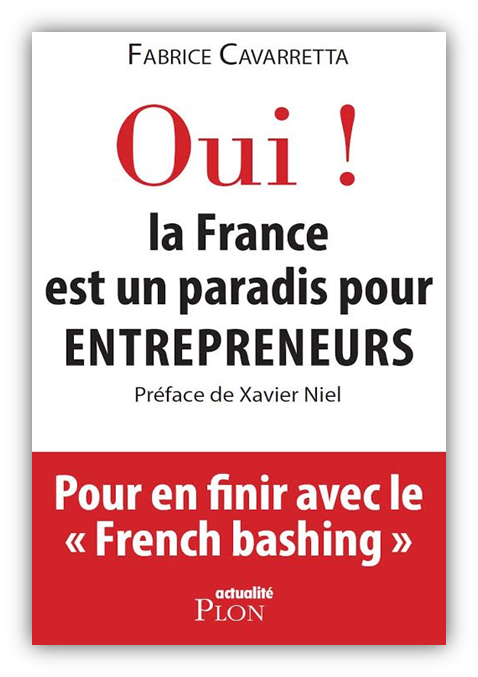
A meeting & signing session with Professor Fabrice Cavarretta is organized on Wednesday, May 11 from 12:00 to 13:15 on Learning Center groundfloor.
Working as a Professor and a Researcher at ESSEC Business School, Fabrice Cavarretta is the author of “Oui ! La France est un paradis pour les entrepreneurs” (Yes! France is a paradise for entrepreneurs). Prof. Cavarretta proves that France offers an extremely favorable ecosystem for anyone planning to invest.
Oui! La France est un paradis pour entrepreneurs
Halte au “French Bashing”
par Fabrice Cavarretta
Editions Plon
216 pages / 14,90 €
The book is available at the Learning Center and for sale at Eyrolles bookshop.
For more information about Prof. Cavarretta’s work:
- Website: http://www.cavarretta.fr
- Twitter: #FranceParadisEntrepreneurs
- Twitter: @fcavarrettaen
- Facebook: Oui, la France est un paradis pour entrepreneurs
Learning Center selection for the ESSEC Disability Awareness Week
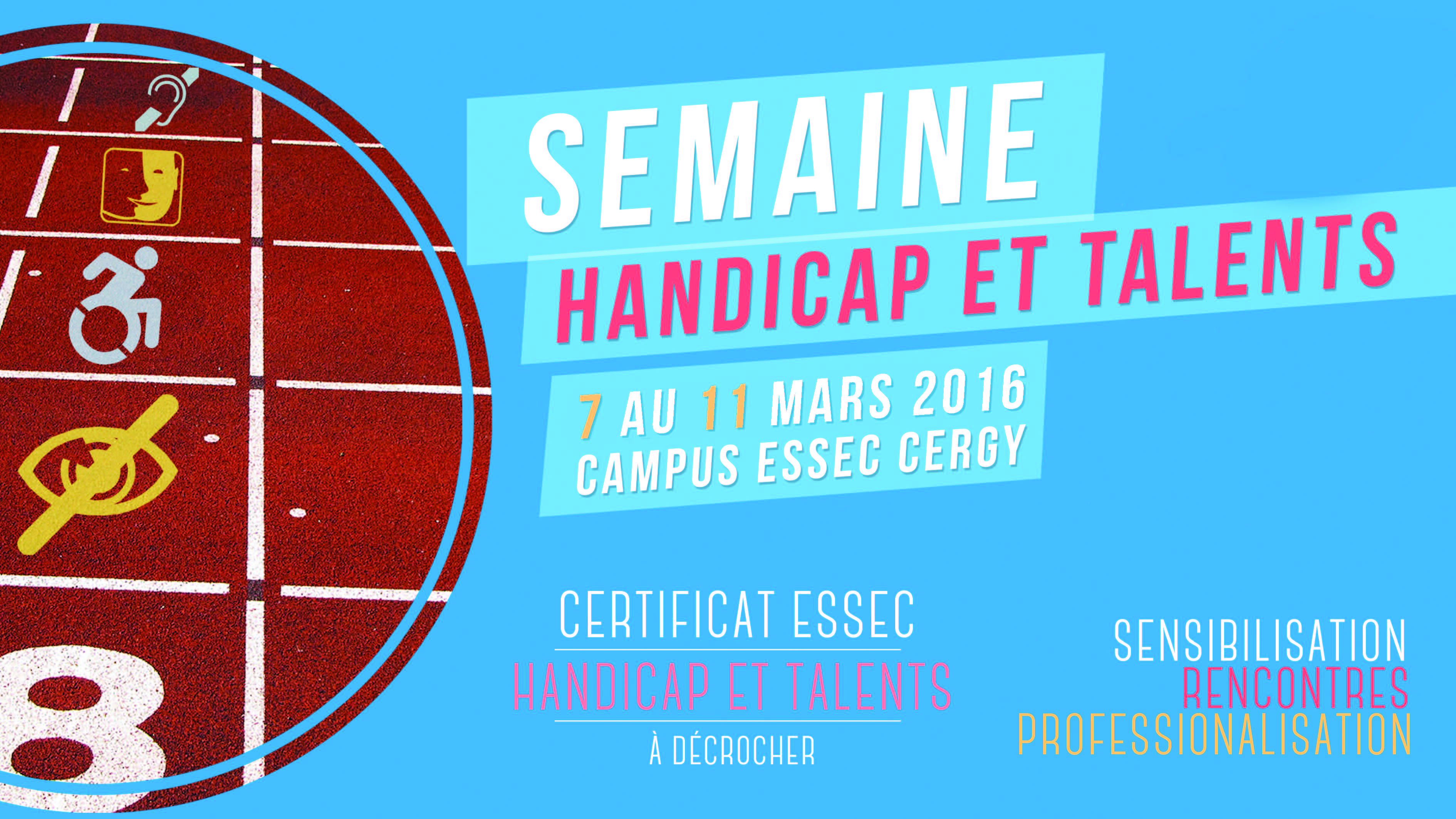
Next week is the ESSEC Disability Awareness Week, the Learning Center has selected some references for you about these topics!
The ESSEC Disability Awareness Week takes place from the 7th to the 11th of March 2016. Its purpose is to raise awareness and professionalize students through meetings, encounters, workshops, in a ludic and interactive spirit, but also in a professional way. This week is open to professors and collaborators of ESSEC.
This week allows ESSEC participants who attend at least 6 of the 9 sessions to participate at a quizz assessing their knowledge about disability after which they can obtain the Disability & Talent Certificate. With the sharp increase of companies engaged in corporate social responsibility policies, this reference represents a Plus in your resume.
For more details about ESSEC commitment to these issues, have a look at handicap.essec.edu.
